Why I sat in a field in Cambridge to have my portrait taken in the age of Instagram
Alexandra Cameron’s portrait photography has taken Instagram by storm. At a time when it has never been easier to capture ourselves on camera, what is the appeal of commissioning someone else to do it? Harriet Hall sits for the photographer to find out


Your support helps us to tell the story
From reproductive rights to climate change to Big Tech, The Independent is on the ground when the story is developing. Whether it's investigating the financials of Elon Musk's pro-Trump PAC or producing our latest documentary, 'The A Word', which shines a light on the American women fighting for reproductive rights, we know how important it is to parse out the facts from the messaging.
At such a critical moment in US history, we need reporters on the ground. Your donation allows us to keep sending journalists to speak to both sides of the story.
The Independent is trusted by Americans across the entire political spectrum. And unlike many other quality news outlets, we choose not to lock Americans out of our reporting and analysis with paywalls. We believe quality journalism should be available to everyone, paid for by those who can afford it.
Your support makes all the difference.Sitting in a barn in Cambridgeshire, dressed to the nines in a foamy black tulle top I had originally bought to wear to my hen party in May 2020, I wiggle and adjust my posture, trying to figure out how I should sit. Should I pull my shoulders back? My dad has always said I have terrible posture (so does the physio, come to think of it). Are my thighs looking particularly vast at this angle? I should probably smile, but then my nose always looks weird when I do that, and I develop several extra chins that weren’t there before.
In front of me, a border collie mix named Bunty, bounds around an enormous garden, verdant from the August rain. Then she squats for a wee by a rhododendron bush. Alexandra Cameron is snapping away at me with her DSLR camera as I try my best to look composed.
The last time I had my portrait taken I was at school: eleven years old, hair glued into a middle parting and tightly bound into two perfect bunches that rested on a static John Lewis shirt. Today, I’m here by choice, to capture a moment in my life that feels more significant than an arbitrary academic year. None of us is likely to forget the past 18 months, but I want to remember, not the shellshock of the pandemic, but the woman I am on the other side.
I first learnt of Cameron’s work when she went viral in August 2020 after one of her photographs was removed by Instagram. The image in question, of black plus-size influencer Nyome Nicholas-Williams, shows the model sitting on a stool in front of a floral backdrop, wearing nothing but a pair of cycling shorts, her arm cradling her naked breasts, her shaved head and tattoos a middle finger up to convention. The photograph was taken down for violating the platform’s nudity guidelines. But while Nicholas-Williams’ account was threatened with suspension, countless snaps of slim, nude white women remained live on the site, including a completely naked self-portrait by Cameron, in which her nipples and crotch are covered only by gaffer tape.
“I got mad, real mad,” Cameron tells me. “To be told that you are unacceptable is unacceptable.” Cameron reached out to her friend Gina Martin (the activist whose campaign against upskirting led to the Voyeurism Act 2019) and asked for help. “The next day [Martin] went on her Instagram stories and said, right, let’s get these images everywhere.”
The photograph was reshared alongside the hashtag #IWantToSeeNyome and Cameron, Nicholas-Williams and Martin launched a petition calling on Instagram to “stop censoring fat black women”. It was signed by over 22,000 people, and Instagram reached out to Nicholas-Williams to apologise and reinstate the images.
When I see someone on the internet who is like ‘this is me, give a sh*t if you care or not’, I have to get them in front of my camera
The portrait had come about as a result of one of Cameron’s “collaborations” – where she reaches out to someone she admires, offers to take their photograph and then, in a thoroughly millennial business exchange, “they post to their social media, I post to mine”. Cameron had spotted Nyome on Instagram and “messaged her fairly quickly. Because when I see someone on the internet who is like ‘this is me, give a sh*t if you care or not, this is who I am’, I have to get them in front of my camera. Forty per cent of the work I do is unpaid, just because it’s what I want to do.”
Since then, alongside her bread and butter of brand work and editorials, Cameron has snapped influencers, authors, radio presenters and activists (among them writer Gemma Styles, broadcaster Alice Levine, influencer Stephanie Yeboah, and Mikaele Loach), sharing the images with her 61.3k Instagram followers.
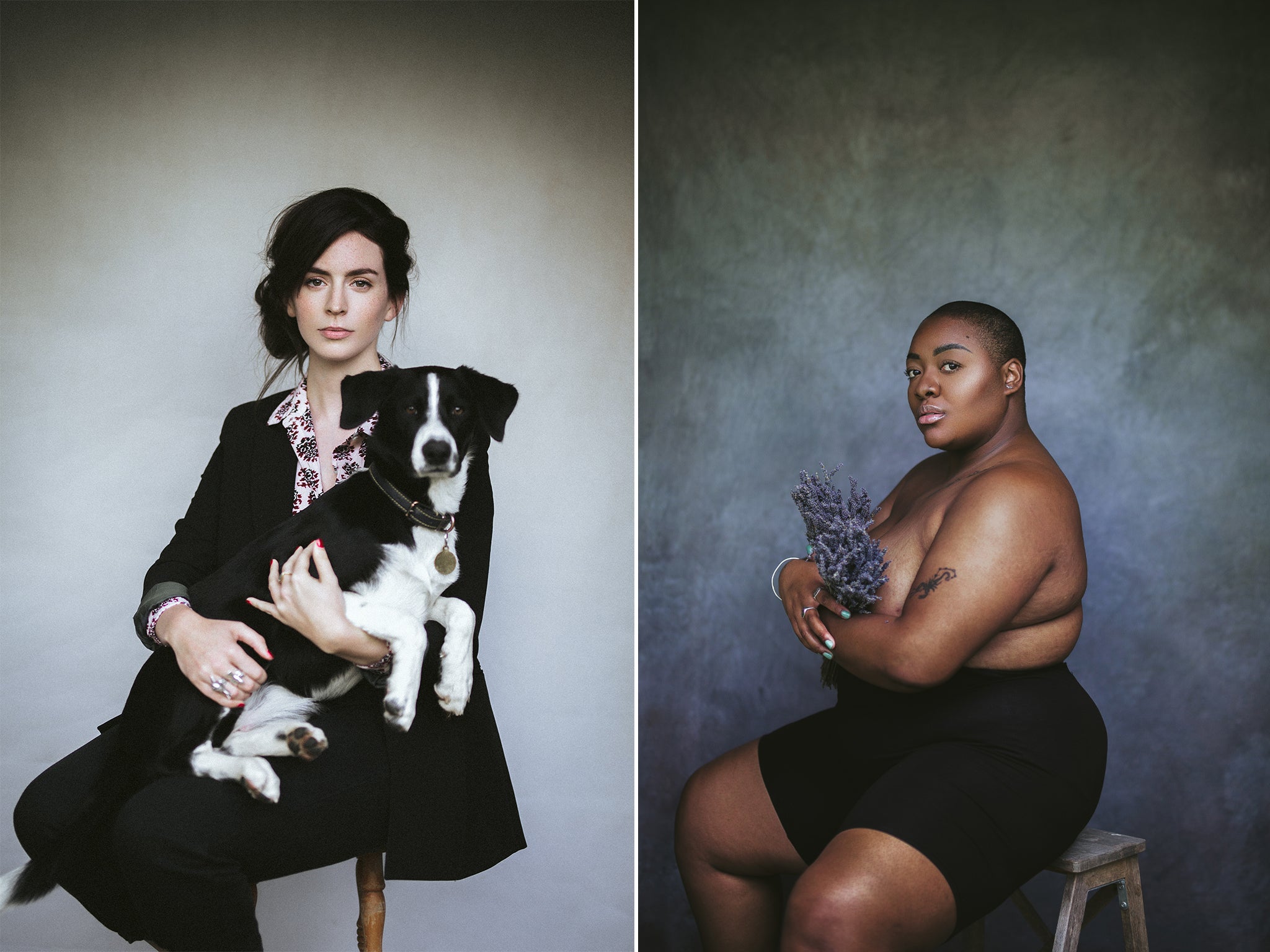
Cameron shoots using only natural light – the barn (or hovel, as she refers to it) serving as a perfect makeshift studio, allowing light to enter from only one direction – against one of several 1970s floral sheets she habitually picks up at flea markets. The resulting images are at once retro in their formality and uniquely contemporary, made so by their celebration of all body shapes and styles.
In the past few months, it has felt like everyone on my Instagram feed has been shot by Cameron, the photographs instantly recognisable with their soft focus and mottled grey background peeking out like daffodils between endless hazy ‘photo dumps’. At a time when it has never been easier to capture ourselves on our own devices, at any time of day, when having a self-portrait is more accessible, more immediate than at any other time in history, what is the appeal of commissioning someone else to take it?
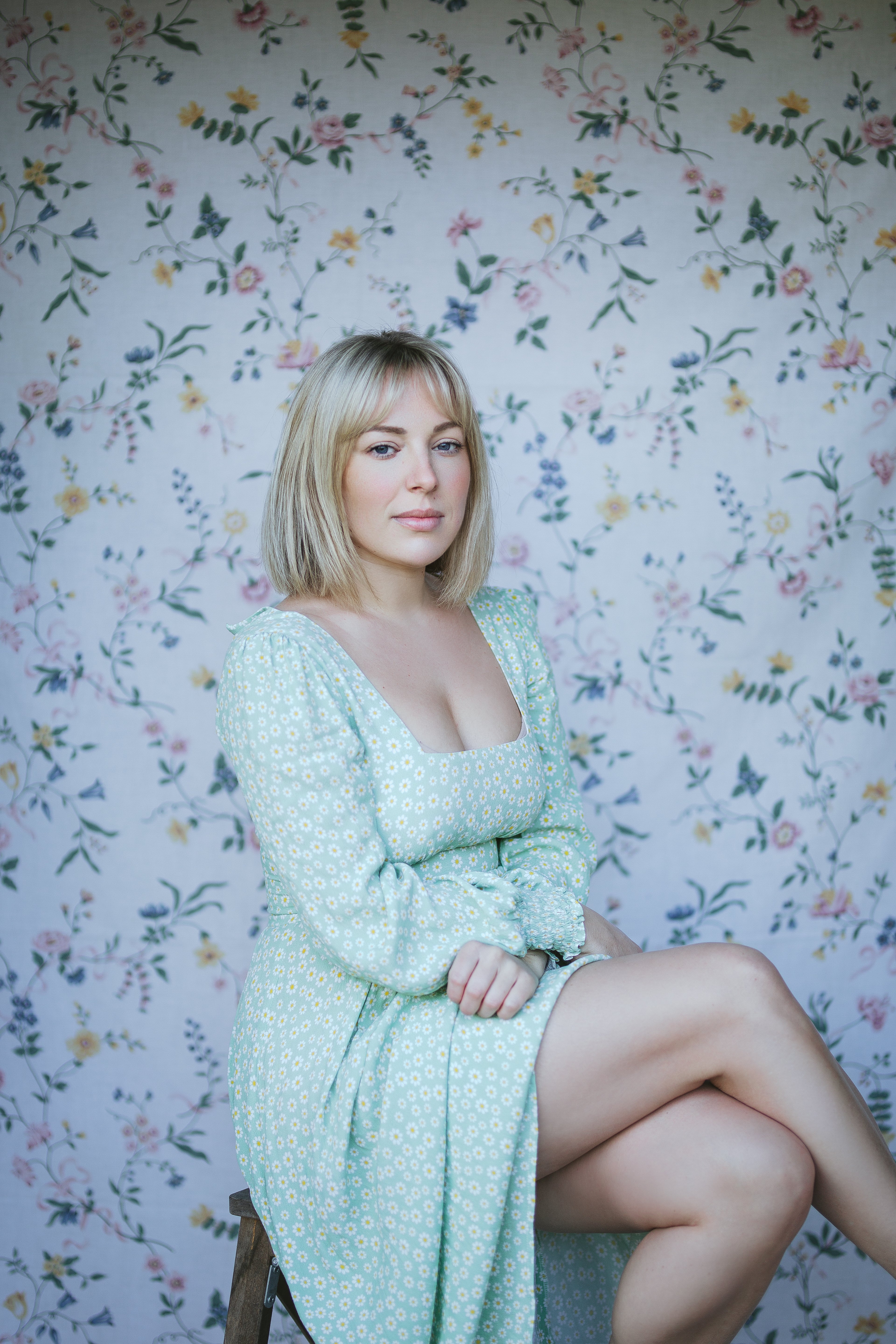
Female artists have often turned to self-portraiture, having been historically rejected by the art establishment and barred from academies. Artemisia Gentileschi, Mary Cassat and of course Frida Kahlo, mother of the modern selfie, all depicted their own likenesses in their work. Today, selfies and posed shots are ten a penny on social media, so perhaps the novelty of photographing ourselves has been muted somewhat. What was once a radical flipping of the canvas has become commonplace.
A tsunami of filtered images and our obsession with the selfie can now smack of a narcissistic generation that lives according to rampant individualism that appears at odds with what female artists of the past were trying to achieve in their work.
But social media, for all its foibles, has also enabled a democratisation of who is able to be presented, to be seen, which sort of bodies are worthy of celebration. “We’re getting to an age where we celebrate everyone – we see a plethora of skin colours, ages, sizes – there is no criteria to necessarily now be a model or to be represented in advertising. Society’s perception of what’s cool is shifting. Now everything is cool,” Cameron says.
For most of us, the only time we’re likely to have a professional take our photograph is on our wedding day. Commissioning a portrait could be an empowering way of capturing an image that celebrates you and you alone. Is this why most people seek out Cameron’s lens?
“It’s a nice confidence boost to get photos just for yourself. I think back in the day, you only saw that kind of photography in magazines, but something about the internet age means they’re more accessible”.
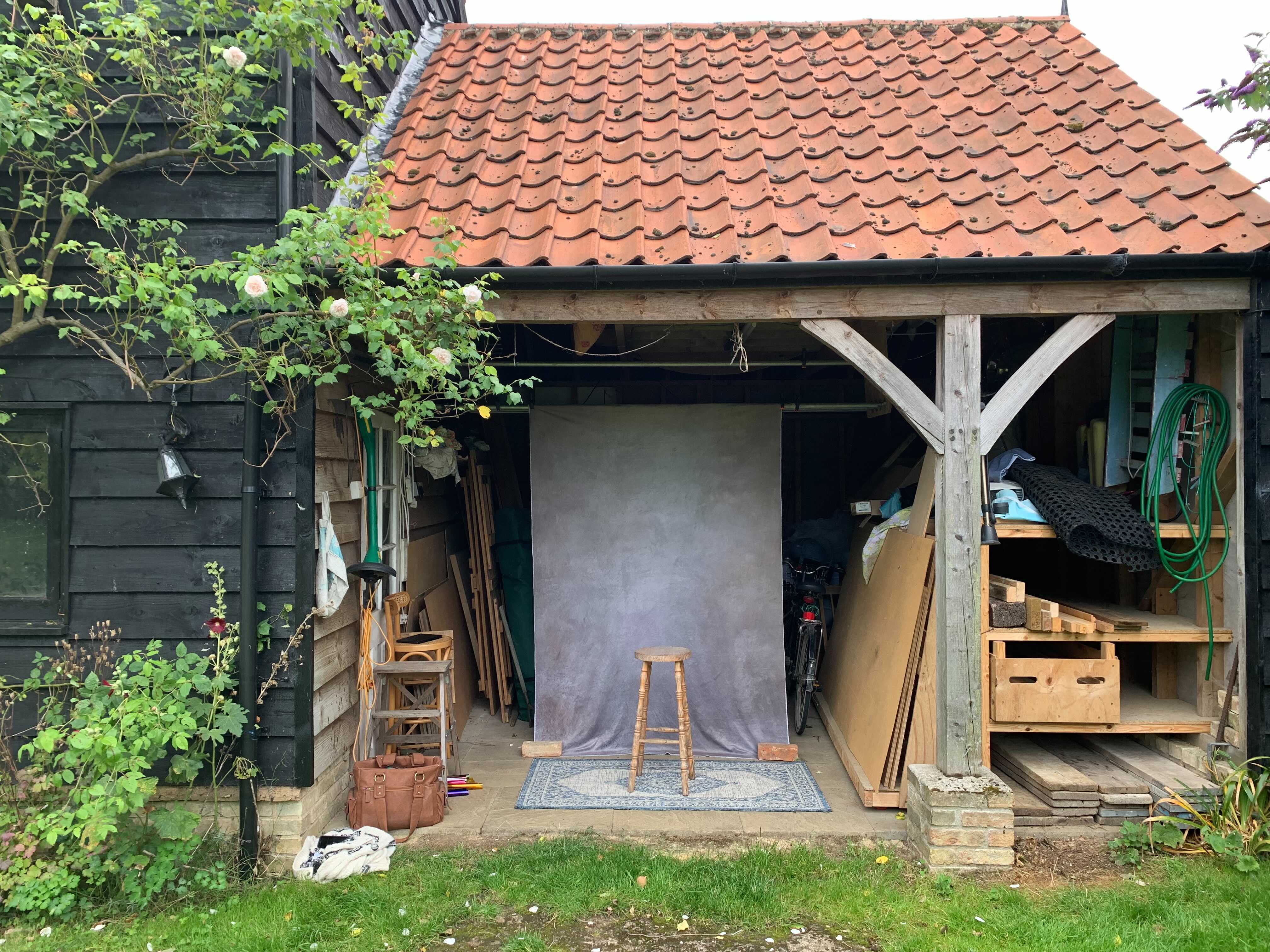
Before the pandemic hit, a large part of Cameron’s work was also what she calls ‘confidence shoots’ – where people commission nudes of themselves. “Most of the emails I got would be from women saying how terrified they are to even email, but that they need to because of issues they have with their bodies. Millennials, in particular, who grew up through size zero and gossip mags, battle self-esteem issues every day, even in this new age of body confidence.” Is stripping bare not a slightly extreme reaction? “It’s a different view, when you look in the mirror you zone in on something, but I’m able to take a photo zoomed out – metaphorically and literally – so that they can see another person’s perspective and they’re like ‘yeah, I’m alright, aren’t I?’”
While I sit (fully clothed – I’m not there yet) posing in the shed, Cameron natters away, snapping as she goes. We discuss anxiety, how the pandemic sent women’s periods haywire and the difficult customers she experienced while working in Blockbuster, Saffron Walden, growing up. Occasionally she interrupts our light prattle to offer confidence-boosting affirmations like, “this is gorgeous!” and “I love that pose!” or to puncture the idyll with her openness: “sorry, I’m such a b*tch, I just keep taking hundreds of photos, it’s my process!”
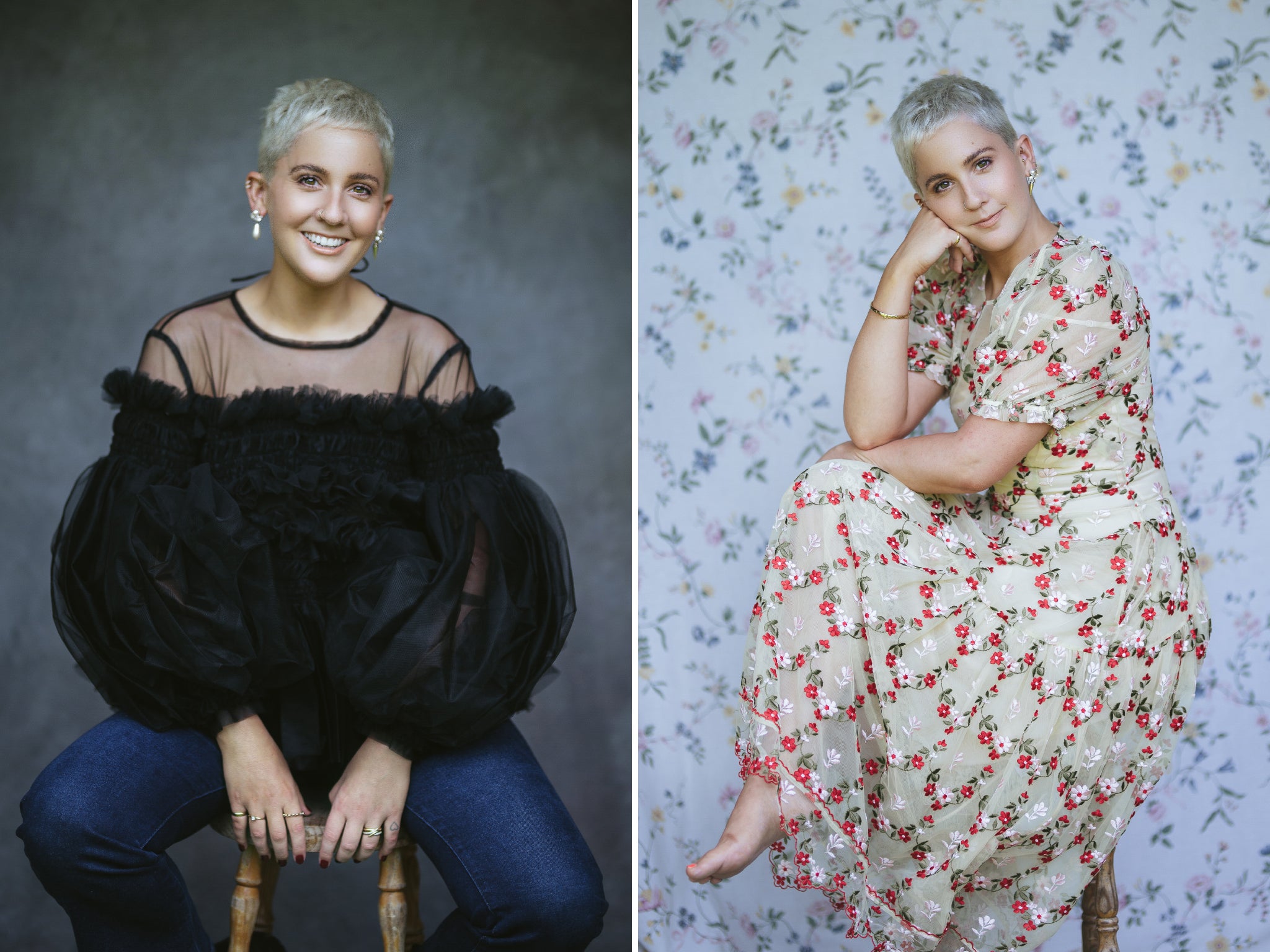
Her candidness puts me at ease, and I begin to lighten up. It’s just the two of us here and I find myself unclenching my stomach and exhaling into the simplicity of being perched on a wooden stool in the middle of this bucolic setting. “I like to chat throughout because it means I’m getting to know a person rather than a person just being in front of my camera,” Cameron later explains over a cup of tea in the garden, while a total of three dogs now zoom around us.
To have a portrait taken at this stage of the pandemic feels a poignant marker of having survived an experience like no other
Cameron explains how much people open up during her shoots, and how meeting people is half the joy she gets from her work. “I think your biggest strength is in sharing your vulnerabilities. I’ve shot people talking about #MeToo, or depression and wanting to show the true face of it all. Hiding it all – there’s nothing strong about that, you’re just putting a face on and pretending you’re something you’re not. And in the Instagram age that is something that is really quite common.”
I find myself opening up about my own personal experiences of the past year: the stress of long hours reporting on the pandemic, a cancelled wedding and two socially distanced funerals.
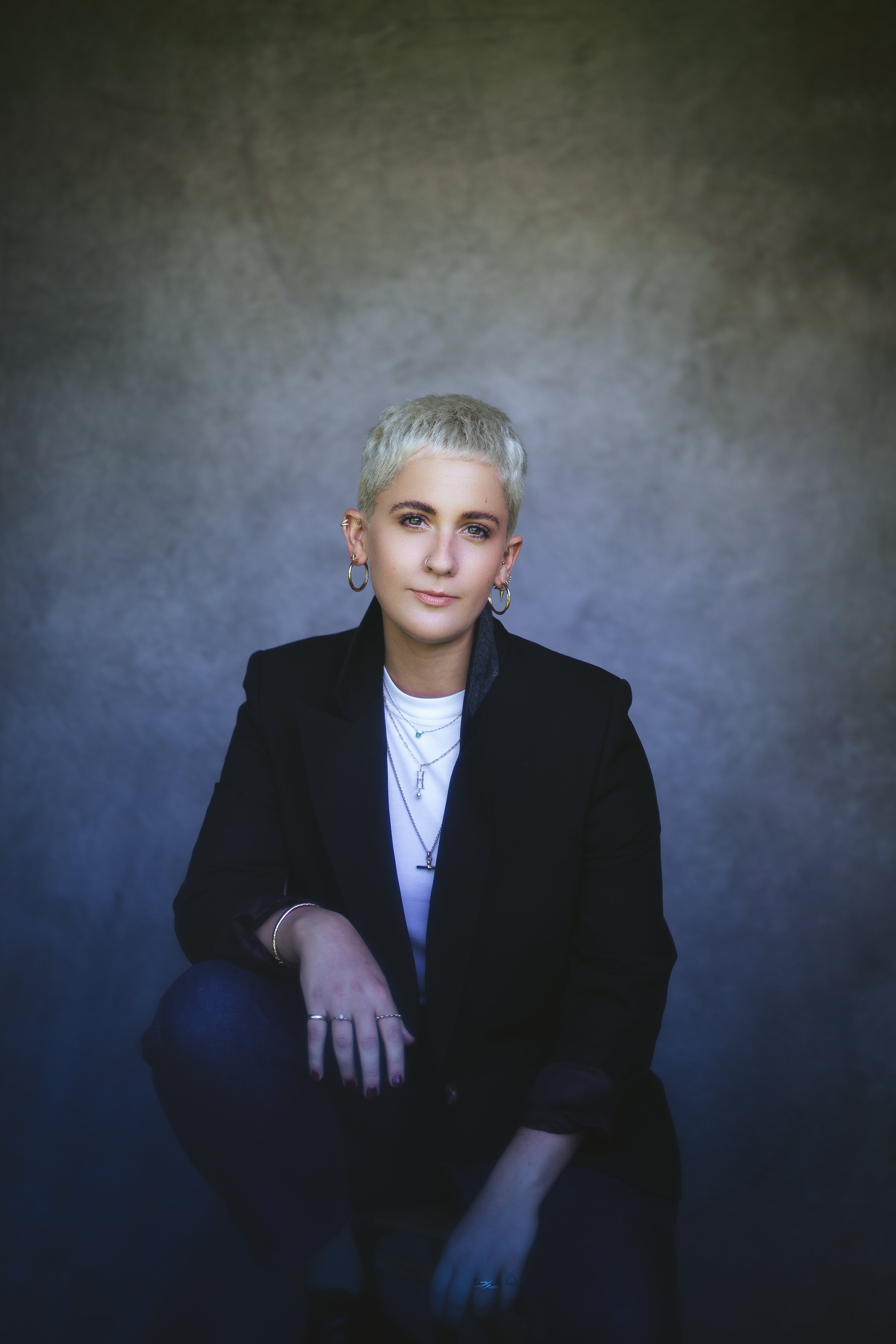
Later that night, Cameron drops two photographs into my DMs. For a moment, I am speechless. I look relaxed, at ease with myself – confident, even. The natural light is surprisingly flattering. “I’ve never looked like this in my life,” I reply.
It’s quite intimate, seeing yourself through someone else’s eyes, whether it’s how you imagine yourself looking or how you wish you looked. Lockdown has turned our question of self on its head, exposing how we cope under pressure, what we require from our social interactions, and teaching us self-preservation in extremis. To have a portrait taken at this stage of the pandemic – as it feels like things might finally be winding down, like we’ve almost come out the other side – feels a poignant marker of having survived an experience like no other.
I send the photographs to a friend. “This might sound weird,” she replies, “but there’s a sort of look in your eyes like you’ve been through something and you’re still going.” Perhaps that’s why the demand for Cameron’s portraits is higher than ever – because even if we step out into our new so-called ‘freedoms’ with trepidation, at least we’re all still going, and that’s something worth remembering.
Join our commenting forum
Join thought-provoking conversations, follow other Independent readers and see their replies
Comments